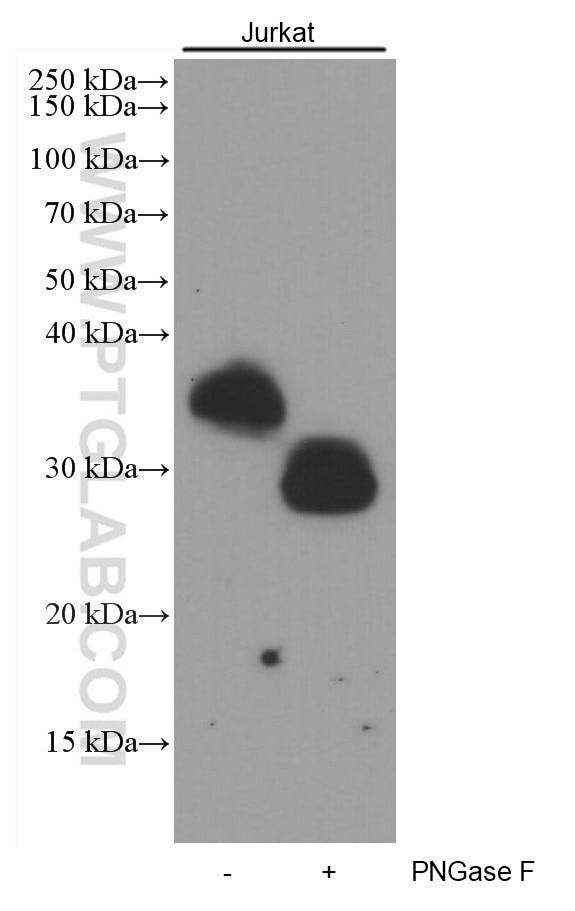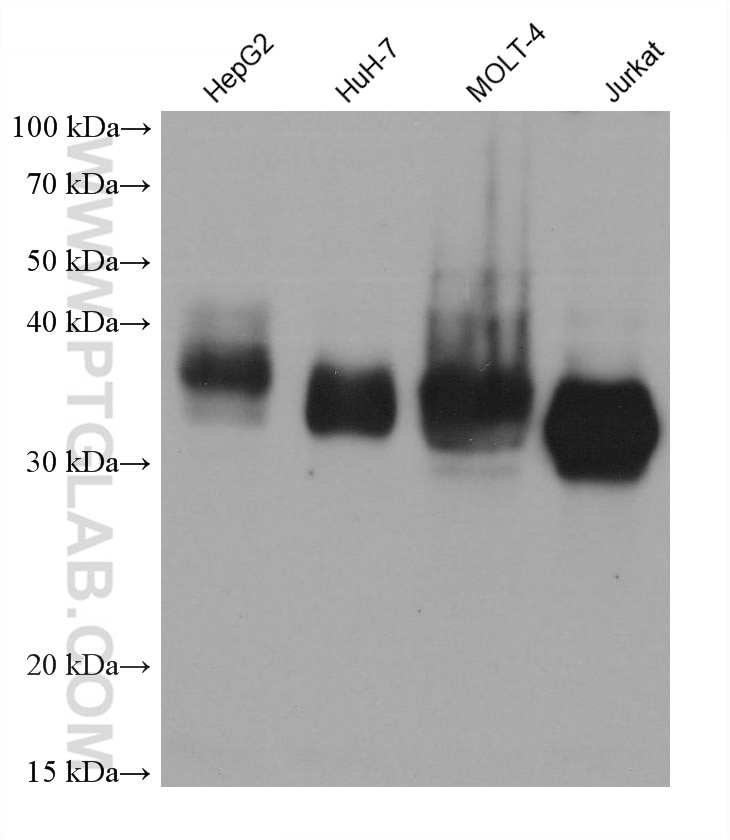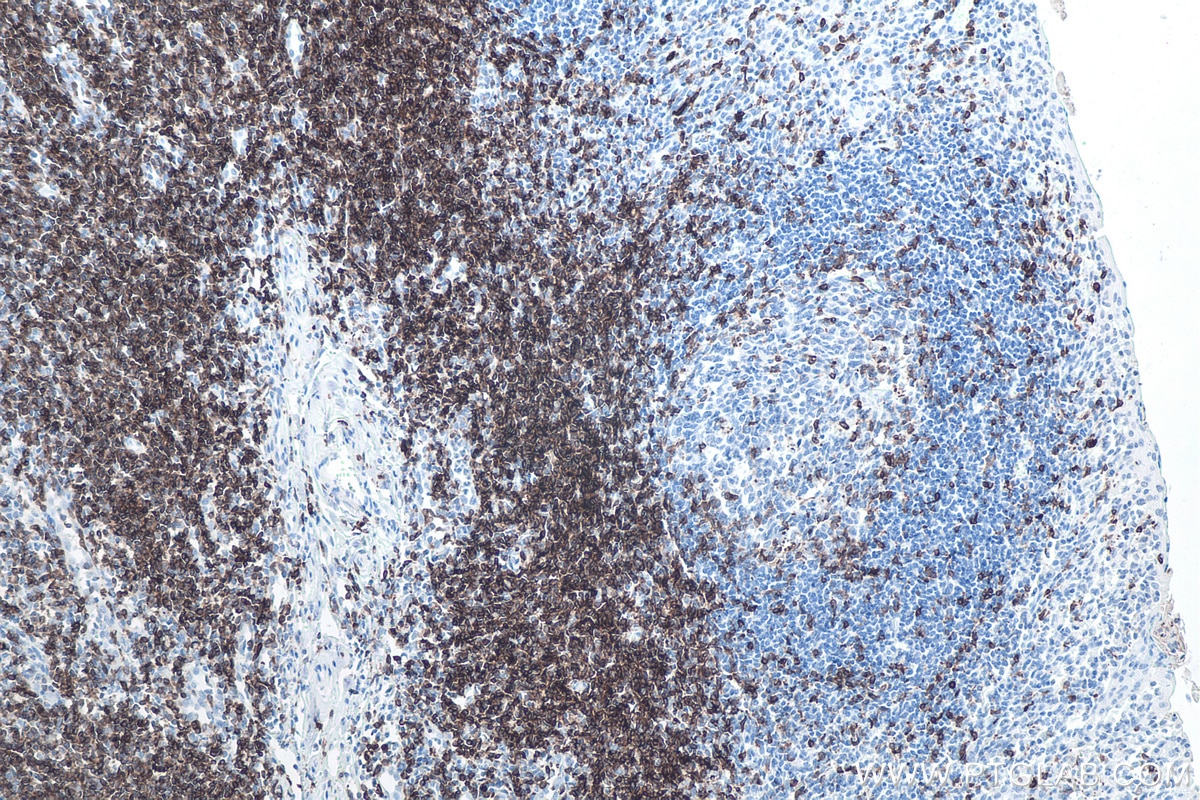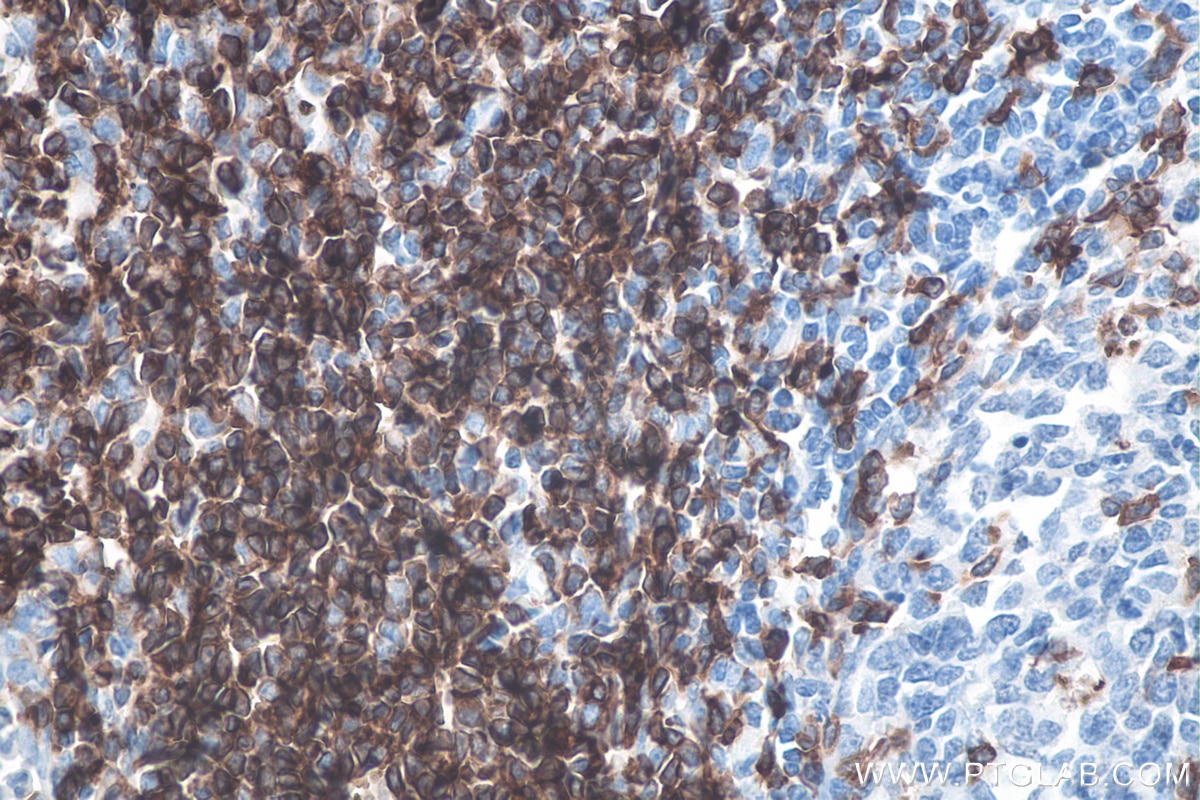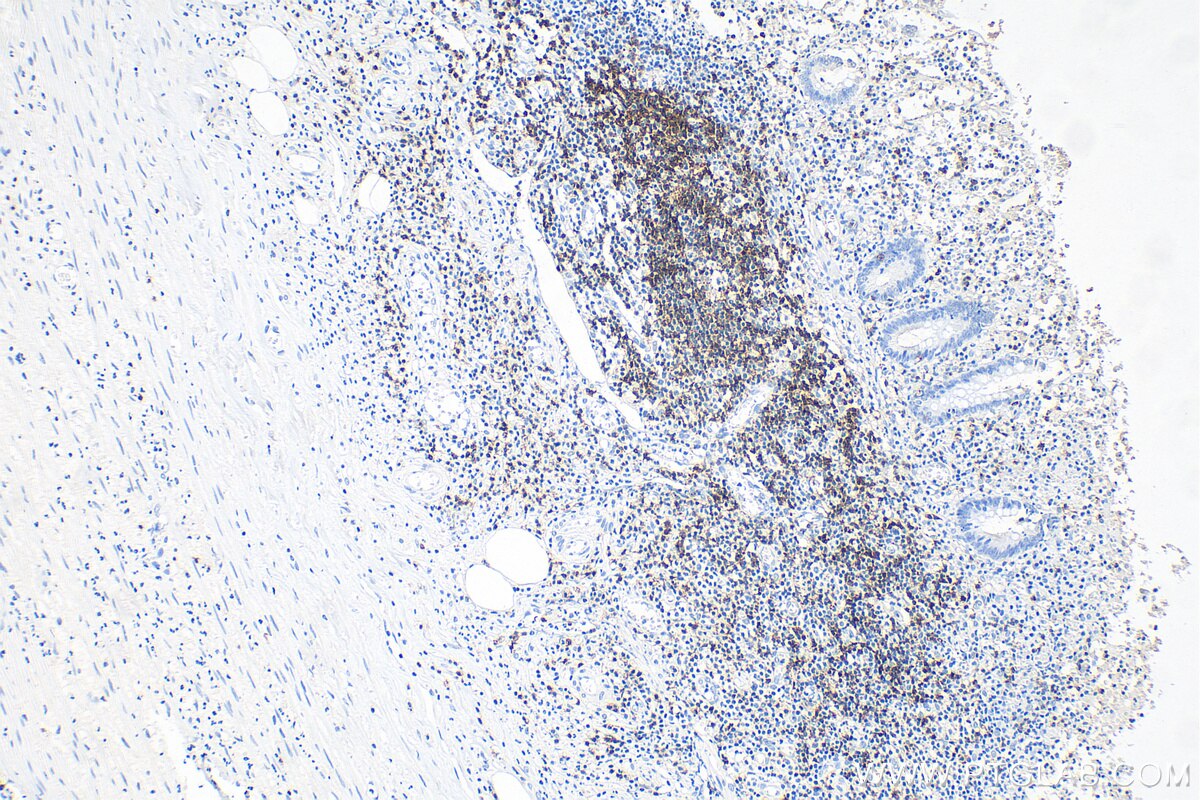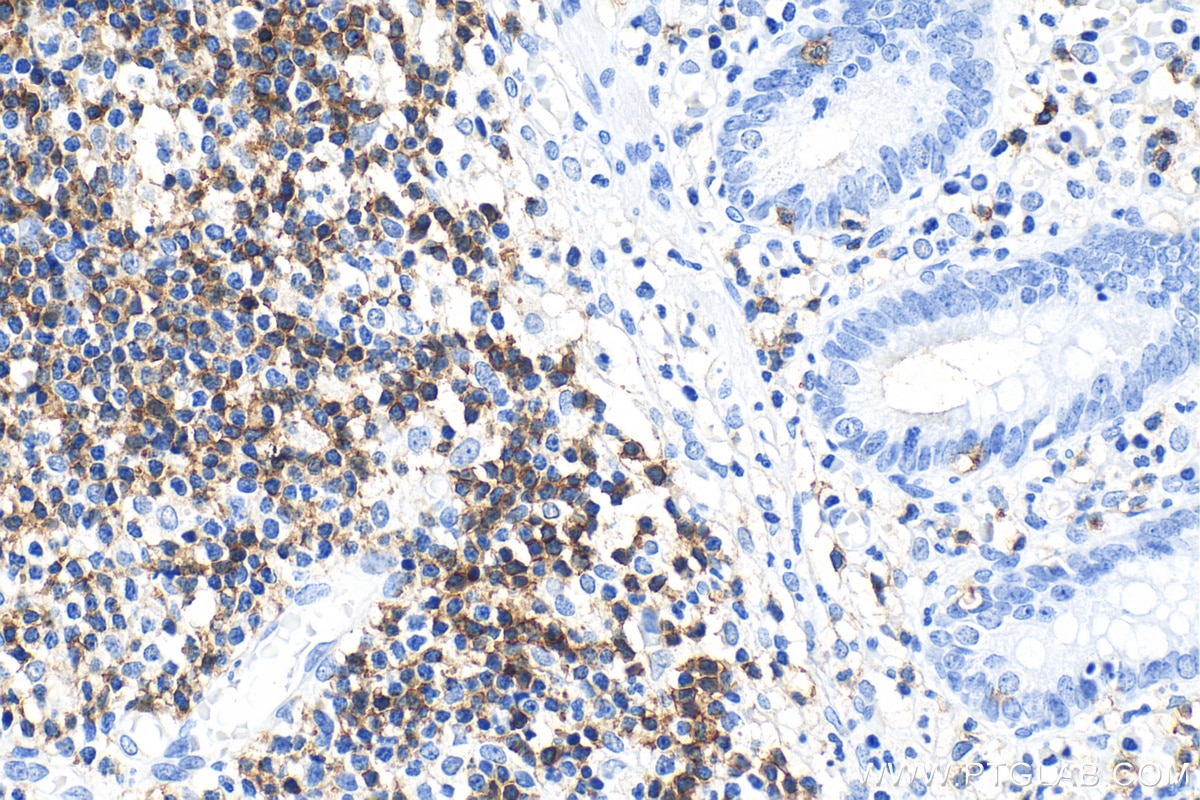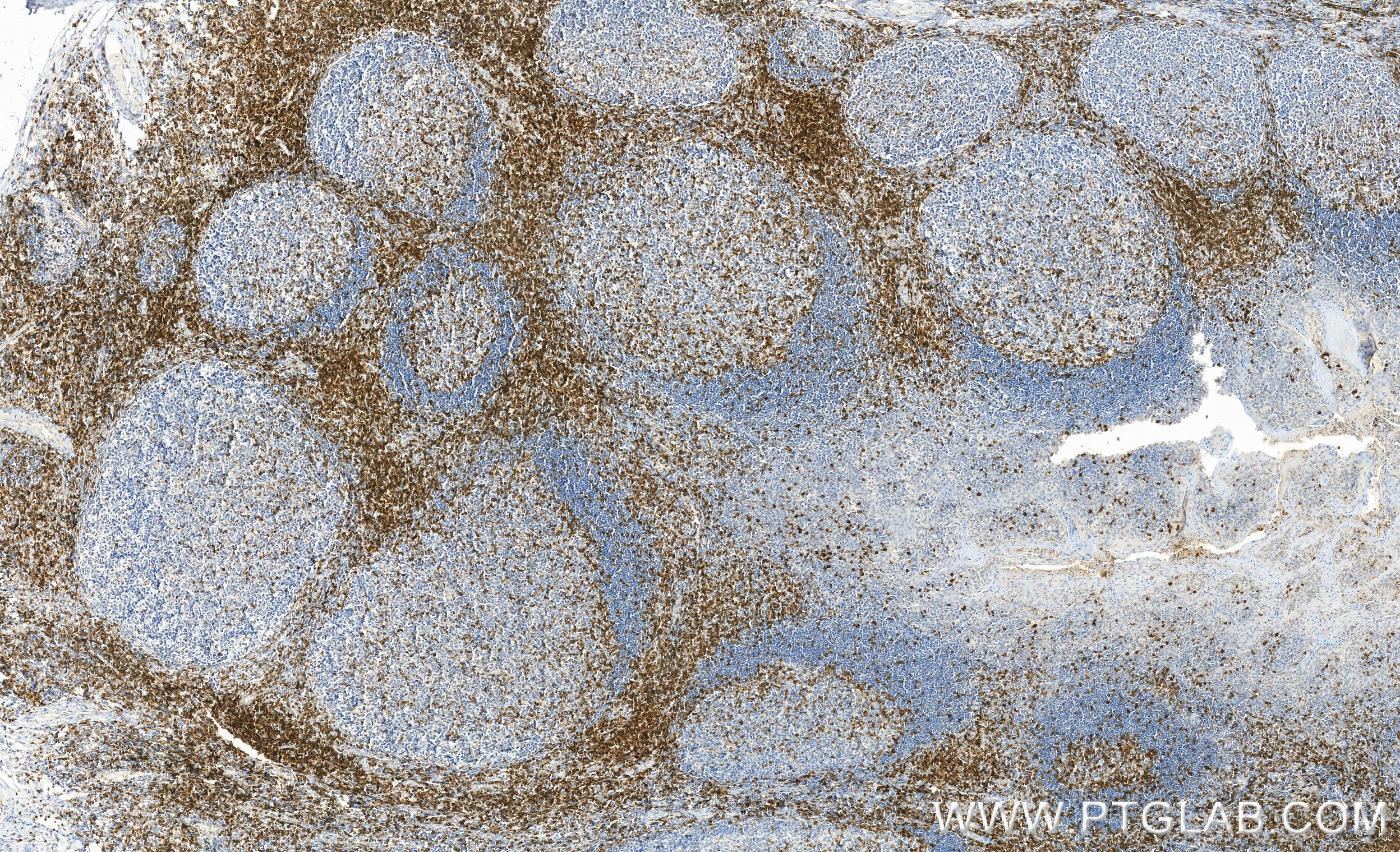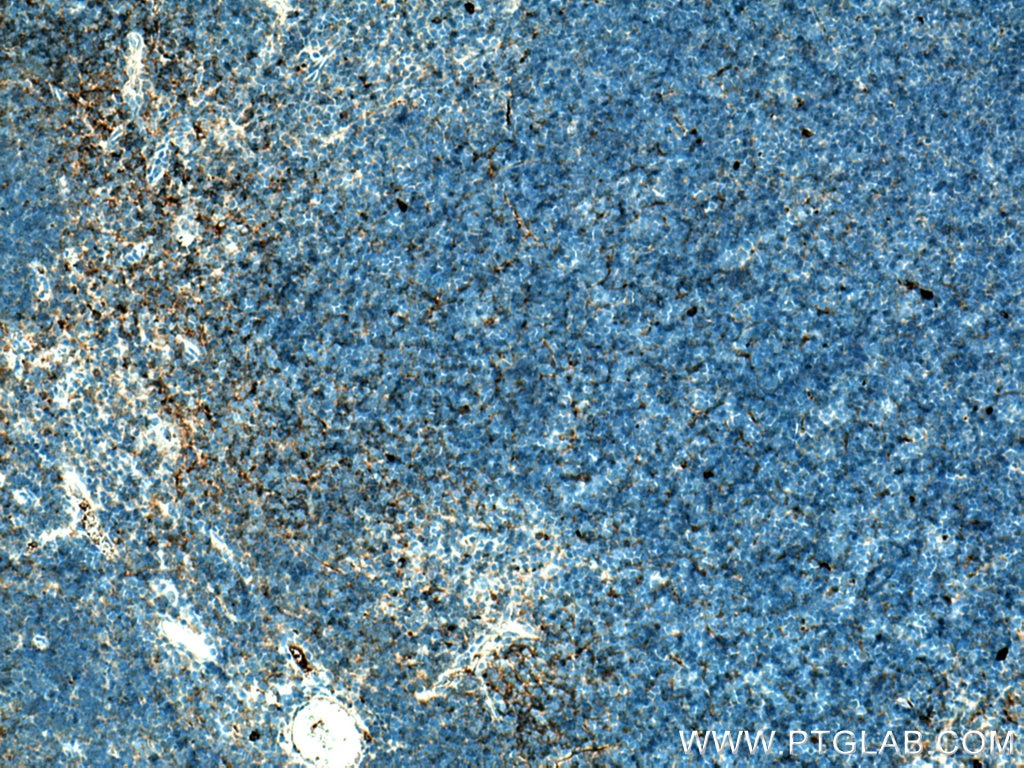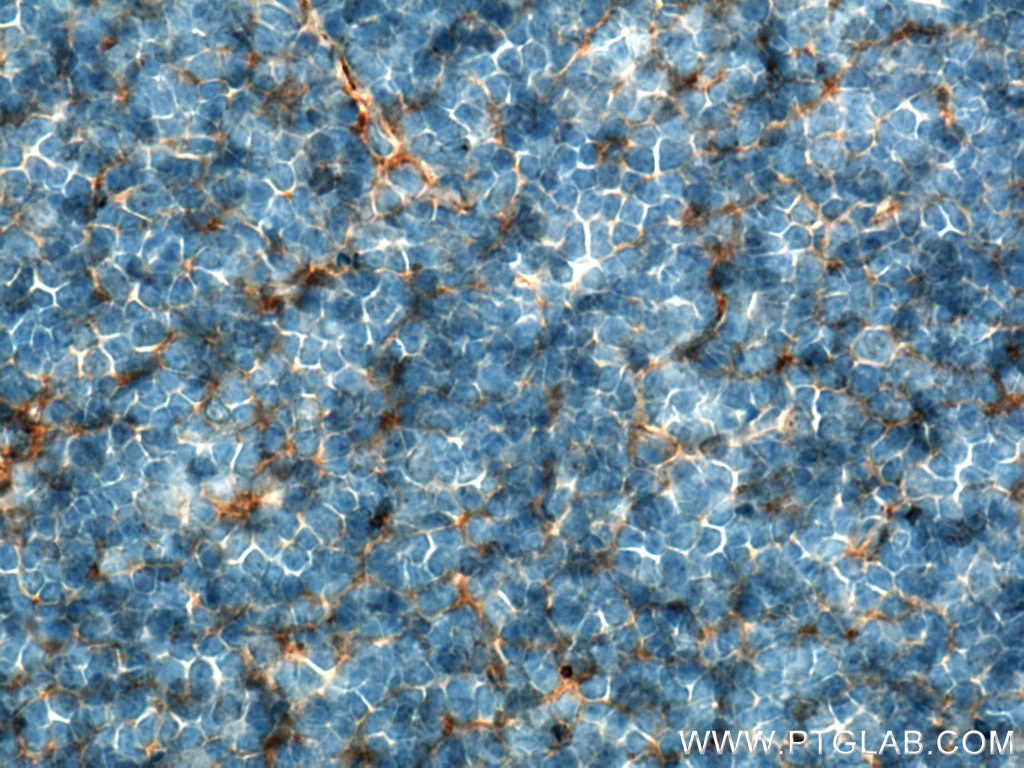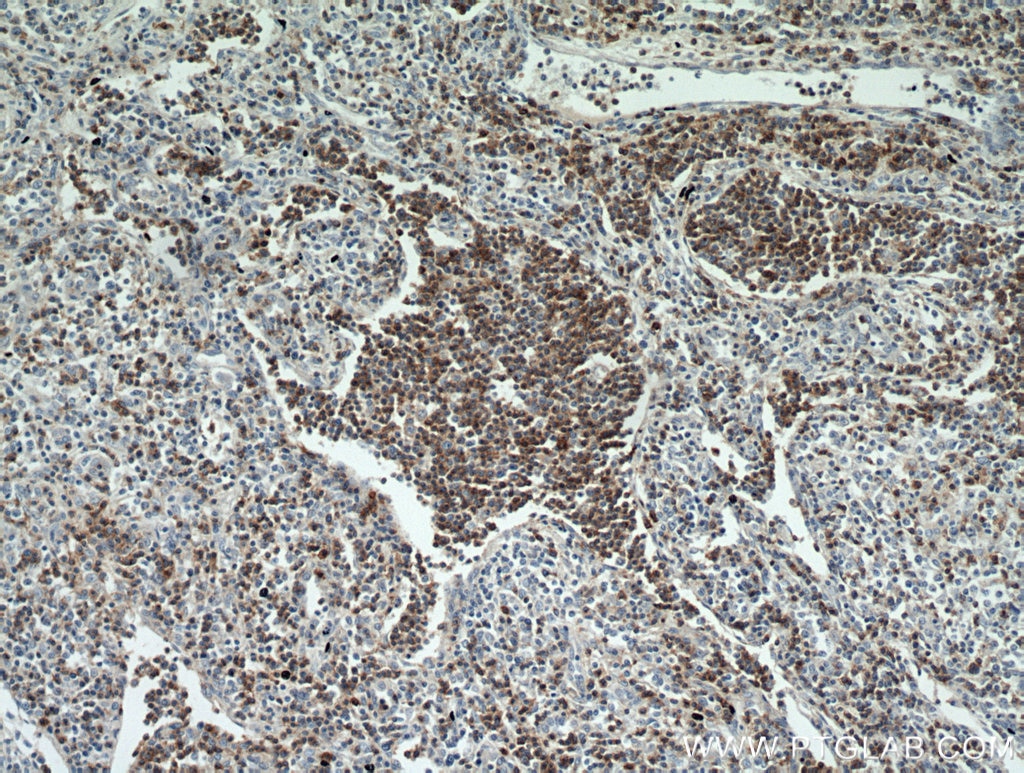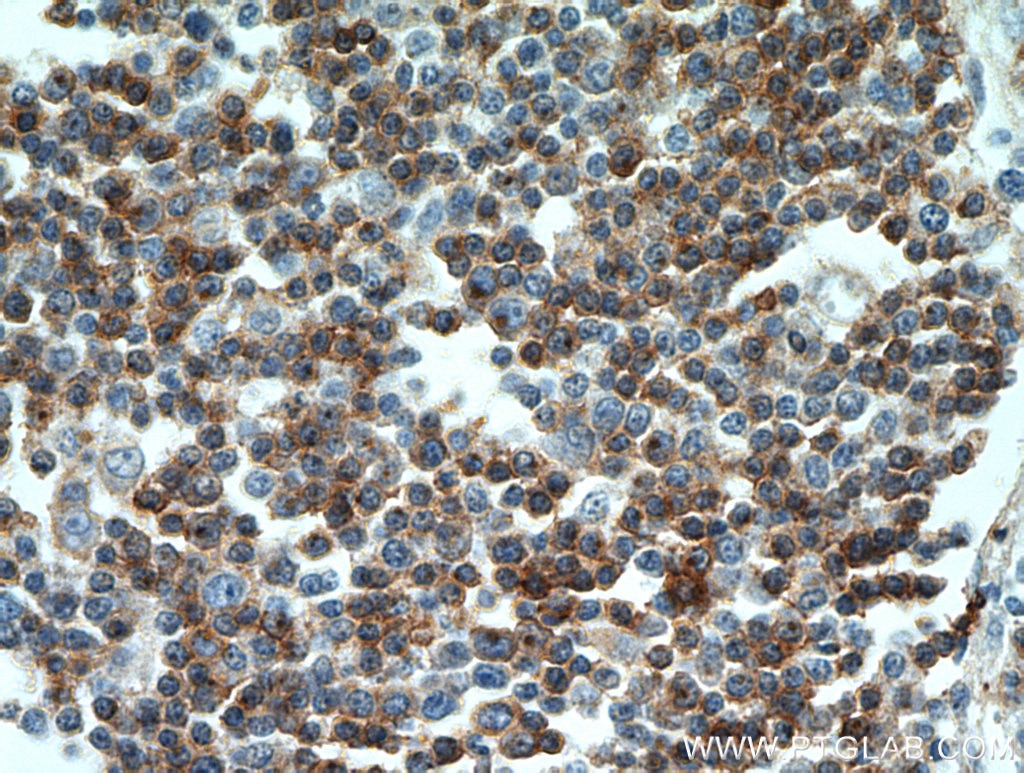Anticorps Monoclonal anti-CD7
CD7 Monoclonal Antibody for WB, IHC, Indirect ELISA
Hôte / Isotype
Mouse / IgG1
Réactivité testée
Humain, souris
Applications
WB, IHC, Indirect ELISA
Conjugaison
Non conjugué
CloneNo.
2A4E6
N° de cat : 60209-2-PBS
Synonymes
Galerie de données de validation
Informations sur le produit
60209-2-PBS cible CD7 dans les applications de WB, IHC, Indirect ELISA et montre une réactivité avec des échantillons Humain, souris
| Réactivité | Humain, souris |
| Hôte / Isotype | Mouse / IgG1 |
| Clonalité | Monoclonal |
| Type | Anticorps |
| Immunogène | CD7 Protéine recombinante Ag1805 |
| Nom complet | CD7 molecule |
| Masse moléculaire calculée | 240 aa, 25 kDa |
| Poids moléculaire observé | 34-36 kDa |
| Numéro d’acquisition GenBank | BC009293 |
| Symbole du gène | CD7 |
| Identification du gène (NCBI) | 924 |
| Conjugaison | Non conjugué |
| Forme | Liquide |
| Méthode de purification | Purification par protéine G |
| Tampon de stockage | PBS only |
| Conditions de stockage | Store at -80°C. 20ul contiennent 0,1% de BSA. |
Informations générales
CD7, also known as Leu-9 or GP40, is a 40-kDa single-pass type I transmembrane glycoprotein belonging to the immunoglobulin superfamily. CD7 is expressed on thymocytes, T cells, NK cells, and cells in the early stages of T, B, and myeloid cell differentiation (PMID: 10530432). It is one of the earliest antigens to appear on cells of the T-lymphocyte lineage (PMID: 3501369). CD7 plays a significant role in T-cell and T-cell/B-cell interactions during early lymphoid development. It is involved in the regulation of cell signaling and biology, including T-cell activation, proliferation, and the expression of interleukin-2 receptor alpha (IL-2Rα) (PMID: 11485208). CD7 is not only a marker for T-cells but also has functional implications in immune cell interactions and adhesion. It can provide co-stimulatory signals and is associated with CD3 and CD45, participating in T-cell activation (PMID: 7523512).
